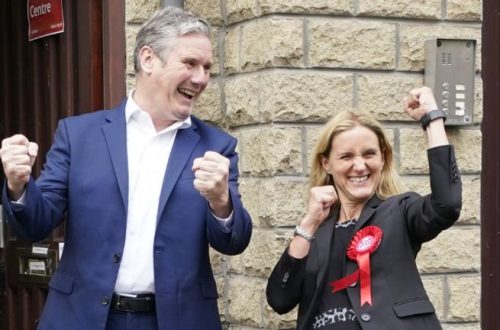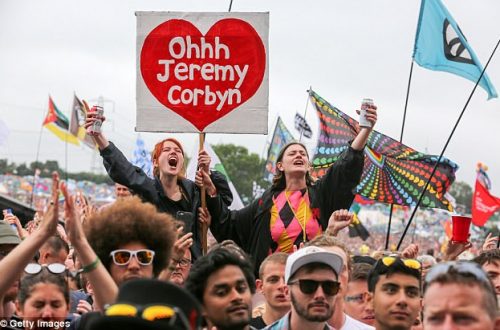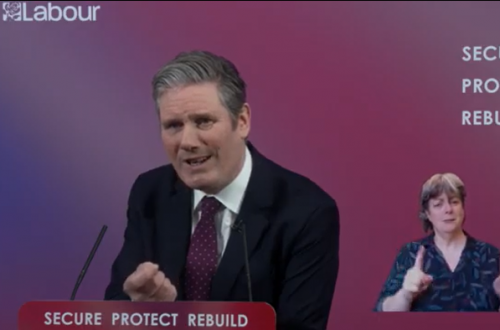I don’t agree with much opinion from Labour MP John McDonnell, a genuine throwback to the early eighties PLP left, and there is little in his piece in today’s Independent to concord with. However this passage is spot on:
Labour supporters want to see a democratic election for a new leader which entails a dignified exit for the existing leader, a thorough, open and comradely policy debate, followed by a democratic election and the uniting of the party to defeat the Tories and win the next election.
The very people who are excluded from this critical process at the moment are Labour Party members. The “poor bloody infantry” who deliver the leaflets, sustain us with their contributions through their party and trade union subs… he says before returning to his usual bollocks.
I claim zero inside knowledge on the events of the past 48 hours and I don’t actually have a dog in this race. I’m sure Gordon Brown would be a fine Prime Minister, although I am less sure about whether he would be an electorally effective leader of the Labour Party. I don’t care about Blair’s legacy, other than ensuring that the main planks of his foreign policy are maintained as Labour’s internationalist stance.
But McDonnell’s point is valid – the choice of Labour leader is a matter for party members and should be decided by democratic method. My feeling is that the behaviour shown by some MP’s in the past week will have damaged Brown’s standing among many Labour members and voters. Words such as ‘managed transition’ may sound soothing, calm and grown-up but before you can have such a transition you need to go through the less smooth business of democratically deciding who the party is handing it’s leadership too.
In that matter, what has been agreed over dinner or lunch, yesterday, a year ago or a decade past, between Tony Blair and Gordon Brown should be of no consequence. It used to be the Tory party that relied on ‘soundings’ and agreements to decide it’s leader — it has never been the Labour way. Of course, formally, there would have to be an election anyway but for the sake of the new leader’s credibility and for the future of the party, there needs to be a genuine, contested election to find the best person to lead the party into the next election – and given that being ‘off-message’ is now OK again, let me say that person might not necessarily be Gordon Brown.
By what criteria should we judge the suitability of the next Labour leader? Given there really is no massive ideological debate, it comes down to choosing someone who above all else has the best chance of beating Cameron’s Tories in the next election. The events of the past few weeks have been a reminder that the Labour Party’s MP’s don’t always keep their eyes on that vital issue. One of the biggest changes since the 1980’s is that the grassroots of the party usually do. The days when the PLP was staffed by hard-headed political realists and supported by irresponsible activists have been virtually reversed. As a rule, you get more political sense out of a hard-working local councillor than a backbench MP or a junior minister plotting his future.
There will, as others have pointed out, be a big call for unity once a new leader is in place. Yet political parties despise having unity enforced upon them and that approach rarely works. The best way to have unity is for the party to choose a leader with a programme and then accept the will of the majority. It is not only fairer and more democratic, it also improves morale and creates a genuine will to work together. A fake election with no real choice will mean that chance of creating a real unity will be lost. The price of a few months of open political campaigning for the leadership, with an exchange of opinions and views on the future between the various candidates, is worth paying.
For an example of how this works take a look at Italy where the left is far more divided. In Italy the Union coalition is made up of several parties ranging from Christian Democrat centrists, liberal social democrats, reformed communists, through to the ultra-left fringes. Given there was no single party structure, the Union chose a leader through a version of the US primaries — registered voters and supporters being polled. The outcome was that a consensus was found for the leadership of Romano Prodi, who went on to beat Silvio Berlusconi in this year’s election. The far-left and a good number of the reform communists were opposed to Prodi but they rallied behind him after the primary results. There is little chance that outcome would have occurred had his leadership emerged from a stitch-up.
Sadly the UK political system doesn’t allow for primaries which, given the small size of party membership, would be a good way to choose leaders. But fortunately for us we have what the Italian centre-left dream of – a single party with a democratic structure. In all the Westminster waffle and the cell-phone plotting of the past week that fact seems to have been forgotten.
One of the most negative results of the Blair-Brown years has been the weakening, in numbers, influence and voice, of the Labour Party’s membership. The time is coming when the thousands of ordinary party card-holders need to come together to make a forceful reminder — the Labour Party belongs to it’s members, those members have a big voice, along with the PLP and the trade unions, in choosing the party leadership and – should some need reminding – can select and de-select candidates for parliament.
The silver lining in this current mess would be if the Labour Party’s grassroots were to give the PLP the reminder they need of exactly what they are in politics to do and who they are accountable to. Even better if, as a result of such a process, the party were to choose a leader committed to rebuilding the reach of the party in communities across the country. If not, Labour will discover that with a de facto imposed leader, at the next election even fewer of “the poor bloody infantry” will volunteer for battle.


